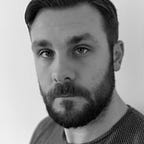Characteristics of an awesome Data Crew Culture (or reasons why I love working remotely)
I am often asked what it’s like to work remotely, mainly by young people working in corporate environments. The efforts those organizations make to appear flat or very agile do not matter — once you join, you start understanding how things really work. If you’re cool with that, all good. But if you don’t like it, there is an alternative. This is why I want to share my experience and insights from my first 100% remote position and why I can’t imagine myself working differently in any close future.
I am a data engineer at Casumo, and I’ve been enjoying my time here since I joined, almost two years ago. Back then, data team had just been created. Today, we are ten people with seven different nationalities, working in five different countries, which possibly makes us the most distributed team in the organization. Our way of working together offers us a certain level of freedom and flexibility, but also demands discipline and professionalism, something that all the team members are aware of.
Mutual respect
Given the different nationalities and cultures, our team could have faced serious communication issues. But the reason we haven’t is trivial: mutual respect. We grew our team around individual cultures. We all know the typical time of Spanish lunch, the dates of Orthodox Christmas or Estoril Open, and we plan and organize accordingly.
Communication
People in this organization have true, human and humble core values and communication is something everyone constantly strives to improve. Every interaction starts as an asynchronous one — if the person on the other side of the channel can answer immediately, good; if not, there is bound to be a good reason for it and he or she will get back to you.This is very important to note because it underlies what comes next: we don’t waste each other’s time in meetings.
Effective meetings
When it comes to meetings, we are trying to stay lean. A weekly meeting is enough to understand who is doing what, and why. If more discussion is needed, it is taken outside the group meeting. Direct communication between fewest people works the best.
Knowledge sharing
When mutual understanding was strong enough, team culture that fosters knowledge sharing has grown naturally. Now there are weekly Show & Tell sessions in which team members present… well, whatever they feel should be presented. It could be a pet project, their latest work on a product feature, an introduction into a topic unknown to others or a concern-raising session. These S&Ts are great opportunities for receiving and giving feedback — a good chance for the team to mature. In addition, our culture is also knowledge caring, if I can put it like that.We motivate and challenge each other to work on new interesting stuff, to broaden horizons and to dig into more details or raise the quality. Considering the tech stack we are using, the challenges we face everyday, increasing data volumes and opportunities those bring in combined, we shouldn’t be doing anything less.
Team Mantras
In regard to our approach to software development, there are two mantras we live by:
- “No code is good code.” — This is what makes us tidy. If we can get rid of a service, component or a piece of code, we go for it. It makes our systems less complex and our lives easier.
- “If there is a chance it will be run more than once, automate it.” — Speaks for itself. Automate it to “forget” about it.
Culture cannot be enforced. It has to be built, developed and nurtured. Changes should be made over time, with care and with a clear understanding why. That’s what we strive for and why I enjoy where I am. The data crew culture resembles the organization as a whole, with a few special characteristics, and it would not work this way if Casumo wasn’t already built on solid principles and values.
This post was originally posted on Casumo blog.
